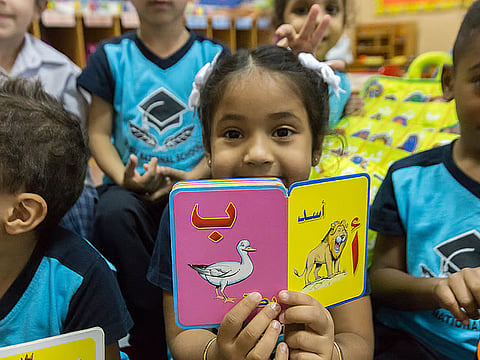Dubai makes Arabic mandatory in early childhood education under new KHDA policy
The policy, which took effect this September, will be rolled out in three phases

Dubai: Dubai’s Knowledge and Human Development Authority (KHDA) has introduced new requirements making Arabic language instruction mandatory in early childhood education, a as part of the Emirate’s efforts to strengthen national identity and ensure fluency from the earliest years of schooling.
The policy, which took effect this September, will be rolled out in three phases. The first covers children aged 4 to 6, with later phases to extend to ages 3 to 4 and, eventually, to infants and toddlers up to 3 years old. Before expanding, KHDA will conduct a two-year evaluation of the outcomes of the first phase.
Under the new framework, all private schools, early childhood centers, and any future KHDA-licensed services must comply with Arabic language teaching guidelines.
Institutions are granted a three-year transitional period to ensure both new and existing staff meet qualification standards for teaching Arabic, aimed at guaranteeing consistent quality.
KHDA requires all Arabic teachers to be registered in its electronic system, with weekly timetables documented and available for inspection.
Schools must also provide evidence of curricula aligned with national guidelines, along with detailed assessments of children’s progress, submitted in periodic reports.
The requirements stipulate that at least one-third of weekly instructional time must be dedicated to Arabic-based interactive activities.
Teachers must allocate between 200 and 300 minutes weekly to structured, teacher-led sessions, and schools must ensure Arabic is used in daily routines such as playtime, mealtimes, and classroom activities.
Each Arabic teacher may be responsible for no more than 75 children, and instruction must balance individual, group, and full-class activities.
Teachers are also required to complete at least 20 hours of annual professional development focused on early childhood language acquisition, including play-based and inquiry-led learning strategies.
KHDA said the initiative is a “landmark step” towards advancing the quality of early years education and reinforcing the role of Arabic in Dubai’s diverse school system.
Sign up for the Daily Briefing
Get the latest news and updates straight to your inbox



